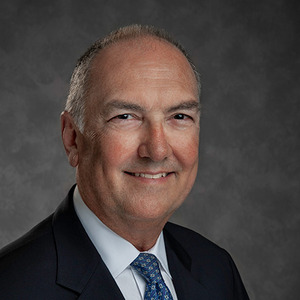Power List

Eduardo C. Alfonso
Power List Profile
Chair and Director, Bascom Palmer Eye Institute, Miami, Florida, USA
What is an interesting or little-known fact about you?
I am honored and humbled to say that the Bascom Palmer Eye Institute has been my only employer. Since joining the faculty as an assistant professor in 1986, Bascom Palmer has given me the opportunity to learn from giants in the field, a lifetime of valuable friendships, and the opportunity to make a difference in the lives of patients that I treat.
Why did you decide to pursue ophthalmology/your subspecialty?
I became interested in the working of the brain when I was in high school. As part of this, human behavior was intriguing. In college I studied neuro-biology and psychology. I wanted to be a neurologist or a psychiatrist when I started medical school. In my junior year of medical school a faculty told me to look at ophthalmology as it combined knowledge of the working of the brain as well as a unique biological system. I loved it.
Who is someone in ophthalmology/your subspecialty that you feel has been particularly influential over the past 10 years?
I have been fortunate to have many mentors, all contributing to my overall formation as a professional. In the last 10 years, I feel that my mentors have been some of the colleagues that are junior to me. They have shown me how to embrace change, and maintain a high level of curiosity.
What’s been the biggest breakthrough in ophthalmology/your specific field over the last 10 years – and why?
Certainly, the treatment for macular degeneration that was developed by Phil Rosenfeld here at Bascom Palmer has been a huge breakthrough in ophthalmology. He played a pivotal role in the development of anti-VEGF therapies for neovascular and exudative eye diseases and revolutionized the treatment of these diseases by pioneering the use of intravitreal Avastin (bevacizumab) therapy, which has prevented blindness worldwide while saving billions of dollars in healthcare expenses.
Is there a particular tool, technological advance, or instrument you would not have been able to live without over the past 10 years?
On April 20, 1970, Bascom Palmer retina specialist Robert Machemer performed the world’s first pars plana vitrectomy. This successful procedure opened the door to many new types of treatment for retinal tears, detachments, macular holes, and other conditions. Together with Bascom Palmer biomedical engineer Jean-Marie Parel, they conceived the idea for an instrument (later called the vitreous infusion suction cutter or VISC) that provided the foundation for doing intraocular microsurgery while preventing the collapse of the eye. Today, retina specialists around the world perform thousands of vitrectomies each year thanks to this Bascom Palmer innovation.
Do you have any strong opinions with which the rest of the field tends to disagree?
I strongly believe that knowledge acquisition should not be a commodity, but available to everyone who wants to learn. To achieve this, we will have to collectively support education for all, not just for a privileged few. Another area of concern to me is limiting access to health care based on legal/political boundaries. For example, individual state licensing to allow the practice of a specialty will probably be eliminated over time, as the national requirements become more prevalent.
What would you like to see change in ophthalmology/your subspecialty over the next 10 years – and why?
Millions of people are living with vision loss because they cannot get the affordable care they need. Access to affordable eye care is critical and most evident in people living in rural areas, with low incomes, or the elderly. I would like to see an increase in the number of openings in our residency programs, and financial incentives for doctors to practice in rural or low income areas.
What is your prediction for where ophthalmology/your subspecialty will be 10 years from now?
I predict that ophthalmology will continue to be a very desirable and rewarding career. The patient-satisfaction rates are high, the field is continually growing, and most ophthalmologists enjoy a good lifestyle.
Do you have any personal missions for the next 10 years?
I would like to give back to society as much as I can. I met a donor who was 102 years old who taught me the three stages of life: first you learn, then you earn, and the final is you return! I want to challenge myself to do this.
Who would you invite to your dream dinner party?
If I could invite anyone – living or dead – my first invitee would be Roberto Clemente! I love baseball, grew up in Puerto Rico – and he was my first hero! My second guest would be Georg Bartisch, the German physician who produced the first manuscript on eye disorders and eye surgery. The Rare Book Room in Bascom Palmer’s Norton Library has a very rare copy of the second edition of AugenDienst (1686) that I first saw in 1984 when I was a resident. I have been fascinated with him ever since. And my final guests at the dinner party? Well, of course, John, Paul, George, and Ringo!
